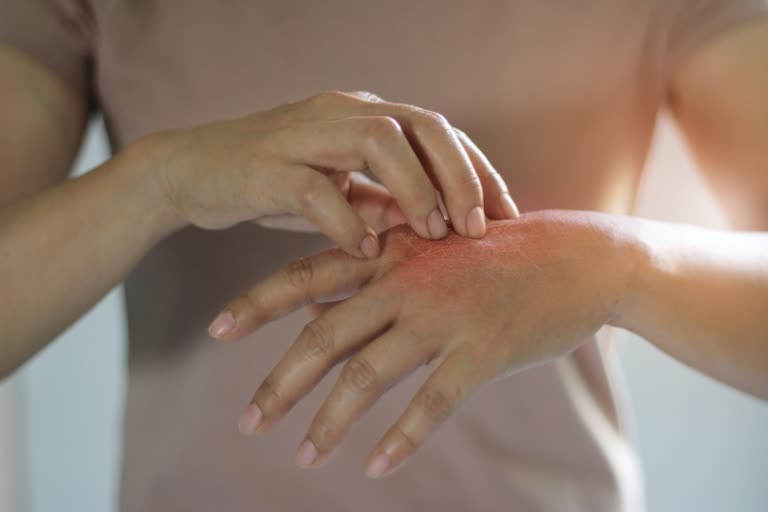Fungal Infections are a growing menace today, simple reason being hot and humid working environments and lack of awareness among people. These can can cause some embarrassing moments when amongst people. The itching can be frustrating at times and can hamper your work. They can , have implications on your looks
ETV Bharat Sukhibhava was in conversation with Dr. Uma S Kamat, Consultant dermatologist at Marmagao Port Trust (MPT) Hospital and SMRC Vasco.
Fungi can be found in soil, plants and even on your skin. Under normal circumstances, these fungi do not cause any problem but can give rise to infection if your immunity is lowered and these fungi multiply faster than normal.
Obese and people and people with diabetes are more susceptible to fungal infections. Fungal infections are highly contagious – One member of the family if, infected can transmit the infection to others by direct contact or by sharing of clothing. A prolonged course of antibiotics or immunosuppressant drugs predisposes to fungal infection.
Common types of fungal infections are:
Ringworm
Mostly seen as a scaly rash with raised borders that is itchy.
Athlete’s Foot
- Seen as a dry, scaly rash between the toes or soles
- Sometimes can present with redness and blistering.
- Prolonged use of closed footwear predisposes to this type of infection.
Jock Itch
- Fungal Infection in the groin
- Mostly common in men and adolescent boys
- Wearing tight-fitting clothes predisposes to Jock Itch.
Ringworm of the scalp
- Mostly seen in children
- Seen as scaly patches with loss of hair
- Associated with itching which can progress to pain
- Requires prolonged therapy with oral anti-fungals
Tinea Versicolor
- Caused by overgrowth of a fungus called Malassezia, which is naturally present on the skin
- Seen as discoloured skin patches on the back, chest and upper arms
- These patches may sometimes itch
- More common in summers
- They can recur following treatment.
Fungal infection of the nail:
- Can affect hands and/or feet, presents as yellowish, brownish discolouration of the nails
- Nails may get thickened if the infection has been for many years
- Prolonged hours of wet work, gardening can predispose to this type of infection.
When to see a doctor:
If you think you have a fungal infection, consult your doctor.
Do NOT apply OTC (Over Counter) creams – as these contain steroids that clear the infection superficially but enhances the spread of the infection underneath the skin.
It is important to complete the full course of therapy as advised by your doctor as incomplete therapy leads to recurrence.
Treatment:
- Your doctor will prescribe oral anti-fungals and creams.
- Duration of treatment will depend on the extent of infection.
- Other family members if infected should also be treated.
Also read : Strong Vaginal Smell Can Indicate Infections
Prevention:
- Keep body dry, wipe thoroughly after a shower.
- After any physical activity like walking, exercise, immediately have a shower.
- Wear loose cotton clothes.
- Do not share clothing or towels.
- Do not apply OTC creams.



